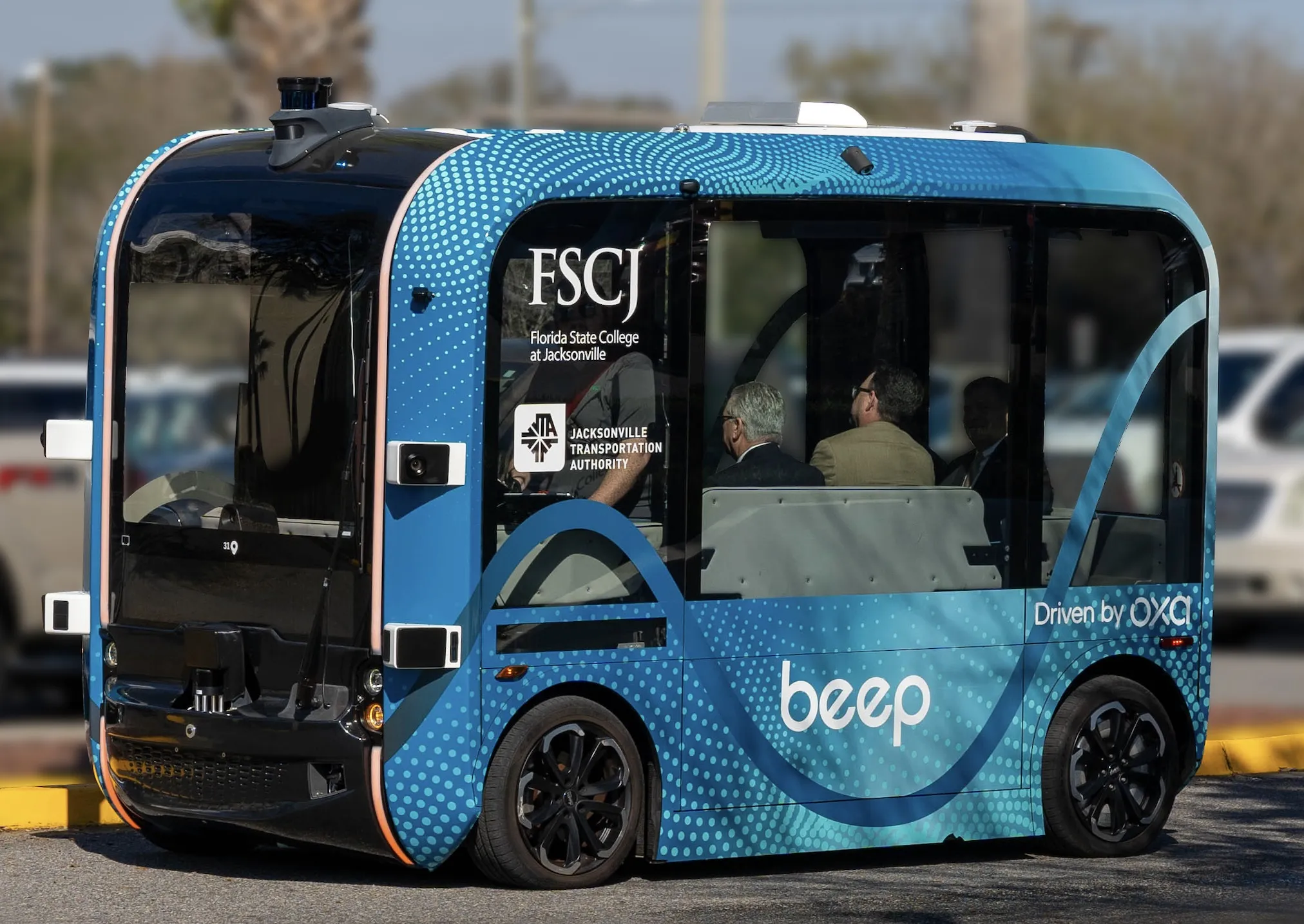
Oxa, which provides self-driving vehicle software, has launched its first commercial Oxa Driver product in passenger shuttles in Jacksonville, in the US state of Florida.
The services are operated by Beep, a US shuttle service provider, in partnership with the Jacksonville Transport Authority and the Florida State College at Jacksonville. The shuttles are part of an autonomous vehicle programme - licensed by the US National Highway Traffic Safety Administration (NHTSA) - and the wider Ultimate Urban Circulator Project (U2C).
U2C is a comprehensive programme to modernise and expand the Jacksonville Skyway – a 4km-long elevated monorail - and introduce AVs into the transport authority’s transportation system. The Jacksonville Skyway, an automated people mover, opened in 1989, has been expanded several times and now runs on Bombardier Transportation equipment. The fare-free system had a ridership of 276,600 in 2022.
By extending the Skyway within the city’s core through the Bay Street Innovation Corridor and expanding beyond into adjacent neighbourhoods, U2C will help create a revitalised and better-connected downtown Jacksonville. U2C plans include pedestrian-oriented, mixed-use communities with multimodal transit options.
“This initiative [with Oxa and Beep] is a testament to years of hard work and collaboration between the private and public sector, including the US Department of Transportation,” said Nat Ford, chief executive of Jacksonville Transport Authority. “We are eager for the [state college] campus and the wider Jacksonville community to experience these AVs firsthand to see the benefits they bring.”
The Oxa Driver enables vehicle automation independent of human control. However, trained safety attendants will be used on the state college route to boost confidence and trust while passengers get used to the self-driving experience. The first roll-out will be followed by seven more featuring Oxa software planned in cities across the US and UK this year.
Oxa said that its partnership with Beep make it the first British company exporting deployment-ready self-driving vehicle software into the global market.
“The AV market is in a really interesting place as the number of innovators begins to shrink in a battle of business and technology models,” said Gavin Jackson, chief executive of Oxa. “My view is AV technology won’t be commercially viable in cars or taxis for a decade so focus should shift to the mass movement of people and goods, specifically shared passenger systems such as the FSCJ shuttle, and industrial logistics. These sectors suffer from severe driver shortages yet they also offer huge public and business benefits if they can be enhanced - and autonomy can do that in a cost-effective way now.”
Beep is delivering autonomous vehicle programmes across six US states in more than two dozen communities. “We’re very pleased with the results of our first autonomous shuttle deployment in Jacksonville, in concert with our partners at the Jacksonville Transportation Authority and Florida State College at Jacksonville,” said Joe Moye, chief executive of Beep.
“Oxa Driver provides an enhanced passenger experience and elevated operational capabilities to further improve safety and we’re excited to expand the deployments of this joint solution, with six additional sites currently planned for 2024.”










